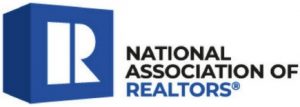21 October 2024: Business Brokers: A Question of Ethics. 3 Examples.
Ethics in business brokering is a vital aspect of the industry, impacting how brokers conduct transactions, interact with clients, and maintain their reputations. We serve as intermediaries in the buying and selling of businesses, making our ethical standards crucial for fostering trust with the business community and those looking to acquire a business.
WHAT WE’RE LOOKING FOR: Food Manufacturing: Private label/contract. Revenue: $5M; EBITDA $4M-$15M. Location: Worldwide. in**@**********************rs.com
At the core of ethical business brokering is integrity. Brokers must provide honest information about the businesses they represent, including financial health, operational challenges, and market positioning. Misrepresentation can lead to significant financial loss for buyers and sellers alike. Transparency is essential; brokers should disclose any conflicts of interest – particularly regarding which party(ies) to the transaction we represent – and ensure clients understand all aspects of the transaction, including fees and commissions.
 Confidentiality is another critical ethical consideration. Brokers often handle sensitive information about a business, including financial records, trade secrets, and employee and contract details. It is imperative that brokers protect this information and disclose it only to potential buyers who have signed confidentiality agreements and been vetted. Breaching confidentiality not only damages client trust but can also damage the business we’re trying to sell. It can also lead to legal repercussions.
Confidentiality is another critical ethical consideration. Brokers often handle sensitive information about a business, including financial records, trade secrets, and employee and contract details. It is imperative that brokers protect this information and disclose it only to potential buyers who have signed confidentiality agreements and been vetted. Breaching confidentiality not only damages client trust but can also damage the business we’re trying to sell. It can also lead to legal repercussions.
Ethical business brokers must strive for fair representation of both buyers and sellers. This includes providing accurate valuations and advice. Brokers should work to ensure that both sides are adequately informed, allowing for informed decision-making. This balanced approach fosters trust and long-term relationships, enhancing the broker’s reputation.
__________________________________________________________________________________
Are you a business owner? A Realtor? A business broker? Are you looking for a business to buy? Do you have questions about the selling or buying process, the valuation, marketing the business, deal structure, financing or some other business issue?
You can find the answers in The Brokers Roundtable℠. Join seasoned business brokers, commercial real estate experts, valuation specialists, financing professionals, attorneys, accountants and all the other talent associated with what we do.
Sign up for a 90-day test drive at The Brokers Roundtable℠. Access the talent – or just see what’s going on in our industry!
___________________________________________________________________________________
Fairness in negotiations is crucial. Business brokers must avoid deceptive practices, such as inflating valuations to secure a listing or downplaying risks to close a deal. Engaging in such practices can lead to legal issues and damage the broker’s credibility. An ethical broker will present realistic valuations and highlight both the strengths and weaknesses of a business, enabling clients to make informed choices.
From a reputational standpoint, ethical behavior by business brokers is of the utmost importance. It is so important that we focus on it in our flagship course and weekly broker training sessions. But the interesting thing here is that, as far as I’ve been able to determine, the IBBA of which we’ve been members for 20 years, has no standard code of ethics.
Perhaps it doesn’t need one?
__________________________________________________________________________________
Courses! Courses! Courses!
Many of you have asked if our Flagship Course, “Learn How to Value and SUCCESSFULLY Sell Businesses“, could be made available on a module-by-module basis. We’re happy to report that this is now possible.
We’ve broken our Flagship into six separate modules (or module groups) to give you all the flexibility you need to learn only what you want to learn – and we’ve moved them all over to the new Brokers Academy in The Brokers Roundtable℠ . The Flagship is still available but the modules are now available individually.
You don’t need to be a Member of The Brokers Roundtable℠ to access any of these courses but if you are, you’ll receive a 20% discount on the cost of any course you enroll in. If you’re not yet a member of The Brokers Roundtable℠, you can learn more – and get access to all the talent and resources – here.
 I’ve been a commercial real estate advisor for almost as long as I’ve been advising business owners and selling businesses. More than a century ago, the National Association of Realtors (NAR) developed a code of ethics that was meant to be followed by all real estate brokers and agents, residential and commercial. That code may have been developed as a preemptive strike in the hope of fending off the threat of ever-increasing government regulation of the industry but it has been updated repeatedly to reflect changes in markets, technology and legislation.
I’ve been a commercial real estate advisor for almost as long as I’ve been advising business owners and selling businesses. More than a century ago, the National Association of Realtors (NAR) developed a code of ethics that was meant to be followed by all real estate brokers and agents, residential and commercial. That code may have been developed as a preemptive strike in the hope of fending off the threat of ever-increasing government regulation of the industry but it has been updated repeatedly to reflect changes in markets, technology and legislation.
Some portions of the NAR code are common sense or second nature to any human being with a modicum of integrity and a sense of fair-dealing. In fact the NAR code, with only modest revisions, could be adopted by business brokers. We are, after all, in a similar business; selling someone’s biggest asset.
Following the Code?
However, there is one article of the NAR code that many real estate agents routinely and cavalierly ignore to the detriment of their clients. We see it all the time – and we can see the damage it does, to the clients, the business and the reputation of the real estate agent.
Business brokers and real estate agents are fiduciaries, meaning we have a fiduciary duty to our clients. This means we must act “in the best interests of our clients”. The NAR code of ethics addresses this responsibility clearly in its Article 11, which states:
“The services which REALTORS® provide to their clients and customers shall conform to the standards of practice and competence which are reasonably expected in the specific real estate disciplines in which they engage; specifically, residential real estate brokerage, real property management, commercial and industrial real estate brokerage, land brokerage, real estate appraisal, real estate counseling, real estate syndication, real estate auction, and international real estate.
REALTORS® shall not undertake to provide specialized professional services concerning a type of property or service that is outside their field of competence unless they engage the assistance of one who is competent on such types of property or service, or unless the facts are fully disclosed to the client. (Emphasis mine.) Any persons engaged to provide such assistance shall be so identified to the client and their contribution to the assignment should be set forth.“
Because they are rarely trained in the practice of valuing and marketing businesses, real estate agents taking a listing to sell a business clearly flout this article in the NAR code.
It is the rare agent that understands that specialized training and education is required to successfully sell a business. What’s the business worth? Who are the likely buyers? Why is confidentiality so important? What’s the best way to structure the deal? Not knowing the answers to these questions – but taking the listing anyway – is a clear violation of the NAR’s code of ethics.
Example #1: Valuation
 Over the past two decades, we’ve witnessed many disasters when real estate agents offer to sell a client’s business notwithstanding the fact that the effort required for success is “outside their field of competence”. Such businesses are brought to market outrageously over-priced. Confidentiality, a crucial aspect of business brokering, is out the window on Day One. The agent markets the business as if it was real estate, putting it in the local multiple listing service (MLS) where no one in the history of the world has ever gone to find a business to buy.
Over the past two decades, we’ve witnessed many disasters when real estate agents offer to sell a client’s business notwithstanding the fact that the effort required for success is “outside their field of competence”. Such businesses are brought to market outrageously over-priced. Confidentiality, a crucial aspect of business brokering, is out the window on Day One. The agent markets the business as if it was real estate, putting it in the local multiple listing service (MLS) where no one in the history of the world has ever gone to find a business to buy.
Specific examples of the damage such an unethical real estate agent can do to a business are described in many articles on our blog. One classic is “Another Valuation Disaster,” in which a very successful agent thought she could do all things for all people only to turn to us 18 months later asking for help.
Example #2: Timing
 This example – also dealing with valuation – is still unfolding; and “timing” is the main feature here. The owner of a business worth roughly $750,000 listed the business with a real estate agent – a SERIES of real estate agents, actually – because he wanted $1.4 million for it and he, apparently correctly, thought that as few such agents had any clue as to how to determine the value, many would agree to take the listing. That owner, who started on this epic kamakazi mission fully 13 years ago, has gone through multiple agents with several brokerages, some national. He has done so despite having talked to at least one business brokerage (us). Thirteen years ago!
This example – also dealing with valuation – is still unfolding; and “timing” is the main feature here. The owner of a business worth roughly $750,000 listed the business with a real estate agent – a SERIES of real estate agents, actually – because he wanted $1.4 million for it and he, apparently correctly, thought that as few such agents had any clue as to how to determine the value, many would agree to take the listing. That owner, who started on this epic kamakazi mission fully 13 years ago, has gone through multiple agents with several brokerages, some national. He has done so despite having talked to at least one business brokerage (us). Thirteen years ago!
Several of the agents he hired have contacted us for help and advice. There was, by that time, little we could do.
This is a clear example of the NAR code of ethics being ignored. None of the real estate agents had any idea how to value or market this business. If one of them had, they would have advised the owner that his price expectation was unrealistic and, were the owner to insist on his price, that agent would have walked.
Example #3
This example, also from our files, is a little different but it also violates the NAR’s code of ethics.
 A commercial real estate broker was brokering businesses that were tenants in some of the commercial properties he managed. Again, our responsibility is to work in the best interest of the client. Such “best interest” would realistically include exposing the businesses he listed for sale to the widest potential buying audience thereby ensuring that the highest value could be obtained for the client.
A commercial real estate broker was brokering businesses that were tenants in some of the commercial properties he managed. Again, our responsibility is to work in the best interest of the client. Such “best interest” would realistically include exposing the businesses he listed for sale to the widest potential buying audience thereby ensuring that the highest value could be obtained for the client.
This broker posted his listings on one of the major business-for-sale websites where it was seen by one of our brokers. As it happened, our broker had a buyer and contacted the broker who listed the business. But that broker completed ignored his fiduciary responsibility to his client when he told our broker that he would not agree to co-broker the sale. He actually stated to our broker that, “if your buyer wants this business, he’ll find me.”
The Bottom Line
This disregard for ethics applies to business brokers in other ways, as well. Specifically, unless a business broker has the training and knowledge to value and market real estate, such brokers should always call in an experienced commercial real estate broker if the business in question includes real estate.
We have a fiduciary responsibility to our clients. If a business broker works in the lower end of the market – Mom and Pop businesses with valuations of up to roughly $1 million – agreeing to take on a selling assignment for a $11 million distribution business ignores our fiduciary responsibility; unless that broker were to bring on one with experience selling businesses of that size.
Fiduciary duty is such a cornerstone in the relationship between the seller and the broker – business or real estate – that we use these examples in our courses and weekly training sessions. Breaching this responsibility opens us up to legal liability and reputational damage. The NAR’s code if ethics is linked to here (and above). But if you don’t want to spend the time necessary to read it, at least pay attention to Article 11.
I’d like to hear from you. What topics would you like me to cover? How can we tailor these posts to be more useful to you and your business. Let me know in the comments box, below, or email me at jo*@*******************og.com.
If you have any questions or comments on this topic – or any topic related to business – I’d like to hear from you. Put them in the comments box below. Start the conversation and I’ll get back to you with answers or my own comments. If I get enough on one topic, I’ll address them in a future post or podcast.
I’ll be back with you again next Monday. In the meantime, I hope you have a safe and profitable week.
Joe
Searching For…
NOTE TO READERS: Our “Searching For…” feature has been moved to our online community, The Brokers Roundtable℠. It will appear there exclusively.

#business #businessacquisition #sellabusiness #becomeabusinessbroker #businessbrokering #businessvaluation #MergersandAcquisitions #buyabusiness #sellabusiness #realtor #realestateagents
The author is the founder, in 2001, of Worldwide Business Brokers and holds a certification from the International Business Brokers Association (IBBA) as a Certified Business Intermediary (CBI) of which there are fewer than 600 in the world. He can be reached at jo*@*******************og.com

